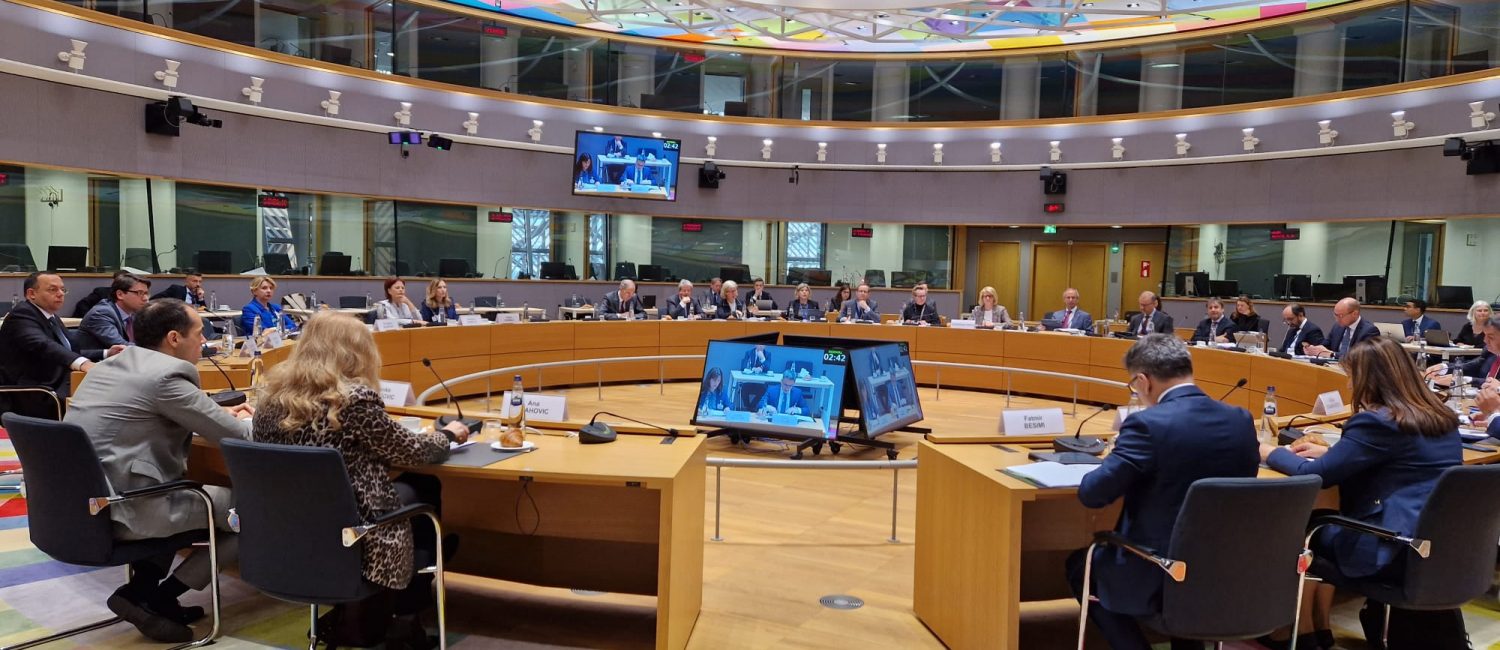16th May 2023, Skopje – Implementing the set structural reforms by the Government, with EU support via IPA Funds and the Economic and Investment Plan for the Western Balkans are grounds for maintaining economic resilience and boosting inclusive growth. Acceleration of the green and digital transition, implementation of educational reforms, boosted competitiveness of domestic companies, reduction of informal economy, as well as job creation will play significant role thereto. These are some of the recommendations stemming from the Joint Conclusions of the Economic and Financial Dialogue between the EU and the Western Balkans and Türkiye, taking place on 16th May in Brussels, attended by Minister of Finance, Fatmir Besimi.
“We are facing a new reality dictated by several overlapping crises, entailing implementation of proper and efficient policies, most of which require swift response, while safeguarding the public finance at the same time. In conditions of slowed down economic growth, the main focus of the government policies, despite managing the high inflation, is placed on supporting investments, necessary for preserving positive growth rate in the short run and its acceleration in the medium run, as well as implementing the structural reforms”, Minister of Finance, Fatmir Besimi said.
He stressed that in order to safeguard public finances, while providing for greater fiscal space for capital investments, fiscal consolidation is being carried out and measures are being put in place, focused on increasing the revenues via the tax reform concept, reduction of the informal economy and similar.
Implementation of the recommendations will contribute to building shock-resilient economy, whereby the growth is projected to accelerate to an average 4% in the medium run, between 2024 and 2028. Pursuing the fiscal consolidation is of great significance for the country. Budget deficit was lower than planned in 2022, in spite of large-scale energy support, being projected at 2.9% of GDP in 2025. Further progress is expected in the upcoming period by implementing the announced tax reforms, as well as the fiscal rules set under the new Organic Budget Law. Inflation, triggered by global factors, is declining. Monetary policy has been appropriately tightened, and continued vigilance remains key going forward, while also preserving the price stability. Pursuing the reforms in the field of education and the active policies for greater involvement on the labour market, is also recommendable.

There are still risks associated with the war in Ukraine, the energy and food prices, as well as the conditions on the global financing market. Thus, targeted support to vulnerable households and firms should be extended, if necessary. The Commission has also proposed up to EUR 100 million in macro-financial assistance, which will contribute to covering the country’s financing needs and further incentivise moving forward with a comprehensive set of policy reforms to address the country’s challenges.
Annual Economic and Financial Dialogue in Brussels, was attended by representatives of the EU Member States, Western Balkans and Türkiye, the European Commission and the European Central Bank, as well as representatives of the central banks of Western Balkans and Türkiye.
Participants agreed that the dialogue should continue to play a central role in providing jointly agreed policy guidance to support a sustainable medium-term economic recovery and help the enlargement partners to gradually meet the economic criteria for EU accession. They underlined their commitment to this economic and financial dialogue and encouraged the Western Balkans and Türkiye to fully implement the jointly set policies and reforms.
https://data.consilium.europa.eu/doc/document/ST-9478-2023-INIT/en/pdf
















